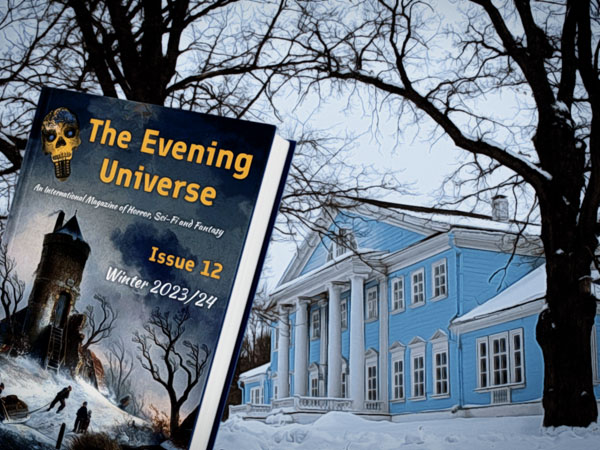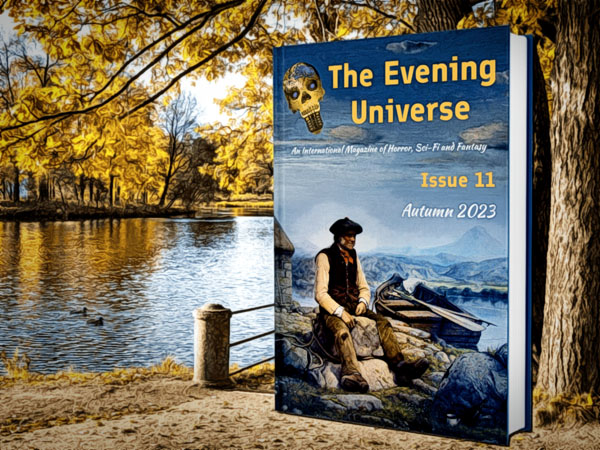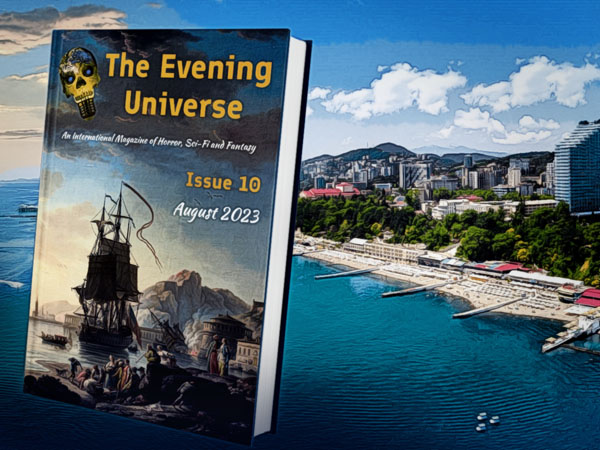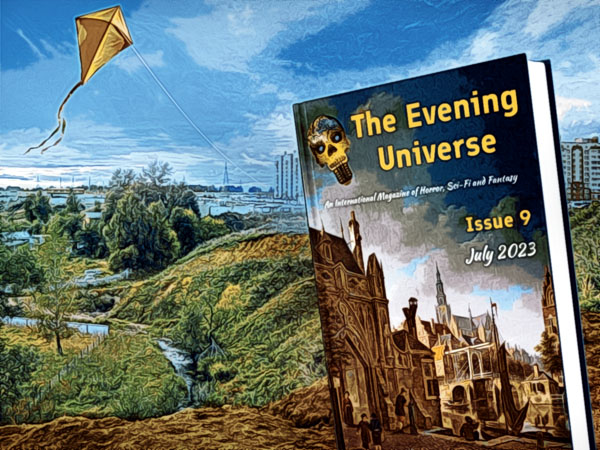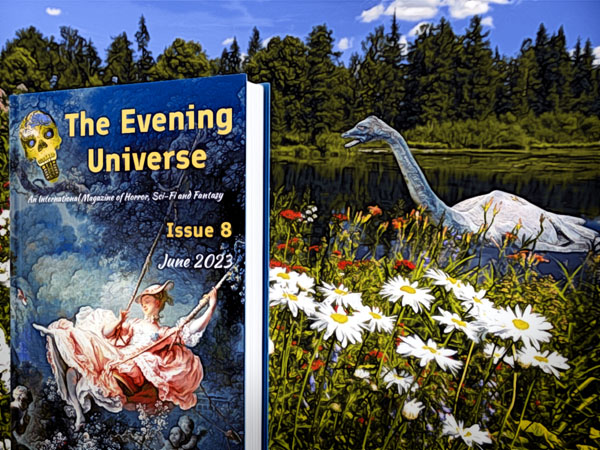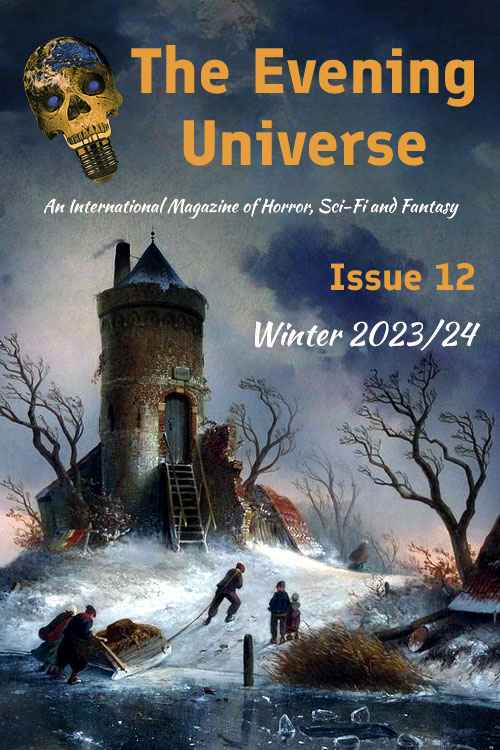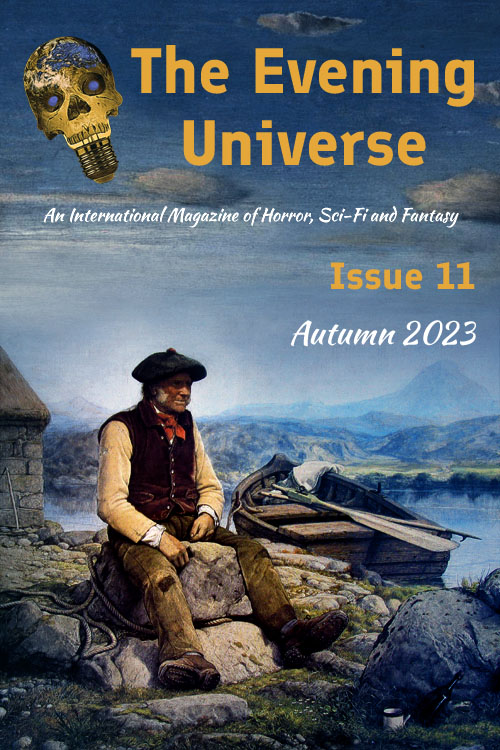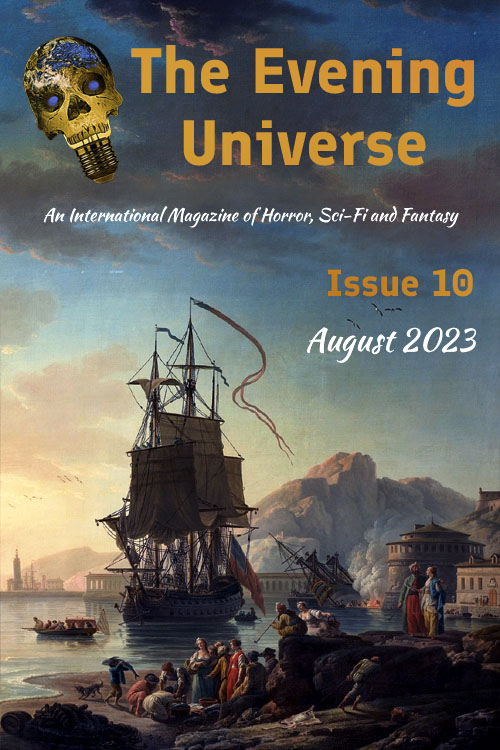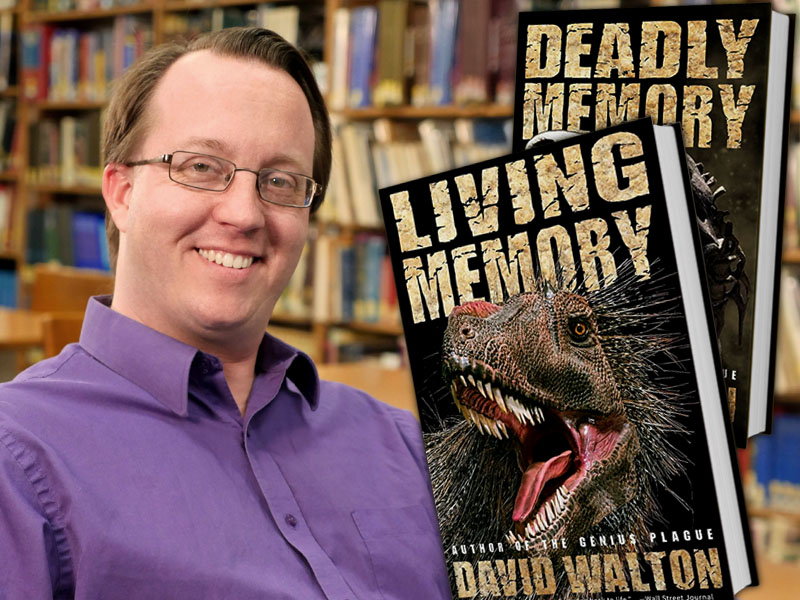
David Walton is an American science fiction author. His first novel, Terminal Mind, won the 2008 Philip K. Dick Award for the best SF paperback published in the United States for that year. In 2018, his book The Genius Plague won John W. Campbell Memorial Award for Best Science Fiction Novel. The Wall Street Journal wrote that “Walton has brought hard sci-fi roaring back to life.”
At the same time, David is an engineer, a Christian, and the father of eight children. It was hard for me to imagine that he would have the time and desire to give an interview for our new literary magazine. But I gathered the courage to contact him, and David Walton was so kind to write the answers to all my questions.
In one of your interviews, you said that you started writing sci-fi short stories because your college friend was doing it. What if you didn’t have such a friend? Do you think that some other things would have pushed you to become an author anyway? Or it was possible that you would not write books?
It’s always interesting to wonder what might have been different if your life had made some small change along the way. Would your personality have led you down essentially the same path? Or might your life, your experiences, your beliefs, and your relationships be profoundly different? In this case, I’d like to think that I would have found writing anyway, but it’s hard to be sure. I have always loved books and stories, and there were times in my childhood where I imagined writing novels or tried a bit of story writing. But I wasn’t one of these kids who grew up writing stories from the time I could hold a pen. I had to discover it, and to discover it, I needed to see someone else doing it.
This larger question is part of what I explore in my quantum physics novels Superposition and Supersymmetry. In both, the main character splits into two versions of him or herself. (In the first book, it’s the father who does; in the second, it’s the daughter.) It’s like having an instant twin who branches off from your life at one moment—they started as you, but they’re not you anymore. How much will the two of you differ? Your genetics and memories and personality are identical up to a critical juncture, and then different experiences will shape the two of you differently. It’s kind of like looking back and saying, “Who would I be if this or that had happened differently?” And I think it’s something we’re all intensely curious about.
As far as I know, Orson Scott Card is one of your favorite authors. Did you read his books “Characters & Viewpoint” and “How to Write Science Fiction and Fantasy” at the beginning of your writing career? What books would you recommend for aspiring authors looking to learn new skills?
Orson Scott Card was one of the authors who shaped my writing most when I was first learning how to do it. Not so much him personally (though I did meet him once, and he selected an early short story of mine to win an anthology contest, which led to me meeting my agent). But I loved many of his early novels, and both of the writing books you mention were extremely helpful to me while I was learning the craft of writing. I haven’t enjoyed Card’s recent books nearly as much, and I’ve stopped reading them, but the books he wrote in the 80s were hugely influential on me.
The other author whose work really influenced me during that time was Nancy Kress. Her short stories are works of art (my favorite is “Out of All Them Bright Stars”), and I found her writing books “Dynamic Characters” and “Beginnings, Middles, and Ends” to be very helpful.
You are the proud father of eight children. Ten years ago, the oldest of them was thirteen and you said that the only reason you have time to write is because you love it too much to quit. Is it easier for you to work now? Or maybe, you miss those times when your children were much younger?
Well, I’m not exactly out of the parenting years yet. My oldest is 22, but my youngest is only 3. I still have 5 kids in the house, which is more than most people! I still only have time to write because I love to do it and make the time, but it can be hard to fit in. I have less energy than I used to when I was younger, too. My house has always been a dynamic, active place, though, and I love it that way. Many people found COVID times lonely, but we had 10 people in the house! Challenging in other ways, but never lonely.
It’s very strange for me that most interviewers ask you how a Christian can be an engineer and science fiction writer. Being an Eastern Orthodox Christian, I knew from my childhood that the creation of the world in six days was a metaphor for people who lived many centuries ago, but it does not contradict modern science. What’s wrong, in your opinion, with people who think that a Christian should be a person who stuck in the past?
Well, there are many Christians who do think that way, at least here in the United States, so I don’t blame people for having that expectation. I was raised to think that evolution was a lie, and that because every word of the Bible was written directly by God, it should be understood as historical, literal truth in a modern sense. Never mind that the authors of the Bible did not share our modern expectations, and that strict historicity wasn’t the genre they were writing. But it’s a hard way of thinking to shake free from, because churches tend to equate that thinking with true faith. If you acknowledge that the Bible might have been influenced by the lack of knowledge or biases of its authors, then you can’t be a real Christian, which might lead to being ostracized by your friends and family, or even going to hell. I am a Christian, but I believe the Bible is a messy, dynamic book that is both human and divine, as Christ was both human and divine. You can’t expect ancient authors to write like modern historians or scientists, and if you insist that the Bible must work like a modern history or science (or even theology) textbook, then there’s a lot of biology, physics, geology, anthropology, and archeology you’ll have to throw out in the bargain.
You said before, “I write the kinds of books that I want to read…If I’d rather be reading somebody else’s book than writing my own, I’m doing something wrong.” The first book of your trilogy “Living Memory” has become an outstanding example of modern science fiction. Can you say us a bit about the things that you want to read in the next two books?
Thank you! Living Memory will be followed by two more books: Deadly Memory, and Memory Reborn. I have the full trilogy planned out; I just have to finish writing it! It’s hard to say a lot about the next two books, because the first book ends with a surprise that has such a big impact on the rest of the story. But you can expect more international politics and paleontology, more insight into the thinking and experience of an ancient culture, and more wrangling over the powerful chemical technology uncovered in Living Memory. Also—I guarantee you—you won’t expect the way it ends.

